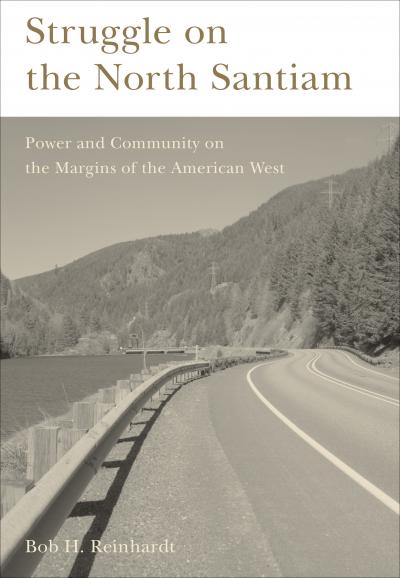
ISBN 9780870712302 (ebook)
The Jackson County Rebellion
Jeffrey Max LaLande
The Jackson County Rebellion explores a dramatic if little-known populist insurgency that captured national attention as it played out in rural Oregon. Jeffrey LaLande traces the rebellion’s roots back to the area’s tradition of protest, including the Ku Klux Klan of the 1920s, then focuses on Jackson County’s politics of upheaval during the worst days of the Great Depression. The broad strokes of the episode may be familiar to contemporary readers, with demagogues fanning rage and relentlessly accusing an elite of corruption and conspiracy.
Two inflammatory local newspapers, one owned by wealthy orchardist Llewellyn Banks and the other by politician Earl Fehl, became the vehicles by which these men won followers. Partners in demagoguery, Banks and Fehl created a movement that very nearly took over county government through direct action, ballot theft, and threats of violence. Among those opposing the two men was Harvard-educated Robert Ruhl, owner/editor of the Medford Mail Tribune. Despite boycotts and threats of sabotage, Ruhl ran a resolute editorial campaign against the threat in his Mail Tribune, which won a Pulitzer Prize for its reporting on the uprising.
The rebellion blazed hotly but not for long. Its end was marked by the arrest of its leaders after the fiercely contested 1932 election and by Banks’s murder of the police officer sent to arrest him. Placing the Jackson County Rebellion squarely within America’s long tradition of populist uprisings against the perceived sins of an allegedly corrupt, affluent local elite, LaLande argues that this little-remembered episode is part of a long history of violent conflict in the American West that continues today.
About the author
JEFFREY MAX LALANDE was concurrently adjunct professor of history at Southern Oregon University and archaeologist for the US Forest Service for thirty years. He has published two books and numerous articles on the history of Oregon and the Pacific Northwest.
Author photograph by Lee Webb
Read more about this author
"Lalande reminds us that however new the political turmoil and violence of the 21st century may seem, its roots lie in a foundational period of discord over the role of capital and state power in agrarian society. The Jackson County Rebellion, often portrayed as proto-fascist, emerges in this account as one of many moments when frustration turned to anger in the American countryside." —Catherine McNicol Stock, author of Rural Radicals: Righteous Rage in the American Grain
“Grounded in exhaustive research, this study of the raucous and turbulent history of Oregon’s Jackson County Rebellion provides a compelling account of establishment politics, insurgent struggles against those policies, partisan intrigue, and conspiracy theories gone astray. A great read!” —William G. Robbins, author of The People's School: A History of Oregon State University
“LaLande pulls on a thread from the cloth of Oregon’s political history—the Jackson County Rebellion of 1932-1933—detailing the unraveling of civic comity and offering readers lessons on the perils of conspiracy-laced populism during a time of economic stress.” —William L. Lang, Emeritus Professor of History, Portland State University
“For our era of populism and its impact, The Jackson County Rebellion offers an insightful study of the populist movement in 1930s southern Oregon, its perpetrators, its objectives, and its outcome.” —Barbara Mahoney, author of The Salem Clique




